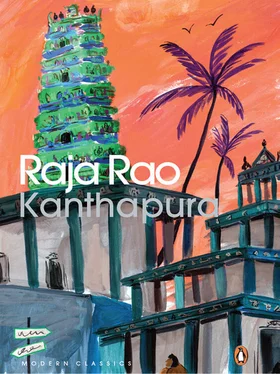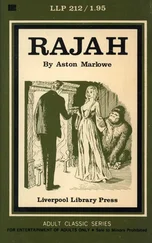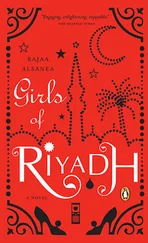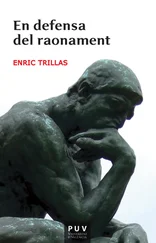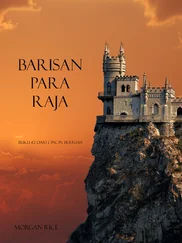Ramanna is the Second Brahmin. He would come along before noon. The ceremony would begin. Bhatta is very learned in his art. It would be all over within the winking of an eye. Then the real obsequial dinner begins, with fresh honey and solid curds, and Bhatta’s beloved Bengal-gram khir. ‘Take it, Bhattarè, only one cup more, just one? Let us not dissatisfy our manes.’ The children are playing in the shadow, by the byre, and the elderly people are all in the side room, waiting for the holy Brahmins to finish their meal. But Bhatta goes on munching and belching, drinking water and then munching again. ‘Rama-Rama. Rama-Rama.’ One does not have an obsequial dinner every day. And then, once the holy meal is over, there is the coconut and the two rupees, and if it is the That-house people it is five, and the Post-office-house people two-eight. That is the rule.
Bhatta comes home. Savithri has eaten only a dal-soup and rice. When the master of the house is out, better not bother about the meal. He will bring some odès in his glass, and for the evening meal a good coconut chutney and soup will do. On the nights of obsequial dinners he eats so little. The child will get a morsel of rice.
‘Did they pay you the two rupees?’ asks Savithramma, waking up on her mat.
‘What else would they do?’ Bhatta goes straight into his room, opens his casket and the two rupees have gone in.
He knows how much there is in it. Something around three hundred and fifty rupees. Already a little had been loaned out; just ten rupees to Rampur Mada. For a nuptial ceremony of some sort. Six per cent interest, and payable in two months. Fine thing. Then Mada sends Lingayya. Lingayya’s revenue is not fully paid. The revenue inspector is brandishing a search warrant. It has to be paid before the coming week. Just twenty-one rupees and eight annas. Payable soon after harvest. For six months it shall be ten per cent interest—’Learned Maharaja, anything you deem just!’—’All right, you are a father of many children, let it be nine and a half.’—’Your slave, Maharaja. You are like a great father.’ And Lingayya gets the money. Next Lingayya and Mada send Kanthamma, our Potters’ street Kanthamma. This time it is her son’s marriage. She will not die without her son having a wife. And it shall be grand. One hundred and twenty rupees, she needs. Her two and a half acres of wet land to be mortgaged for three years. — ’It means a bond, Kanthamma’—’Learned Bhattarè, whatever you like. Do I know how to decipher your books or your papers? You will say “This is the paper, Kanthamma.” And I shall put my thumb-mark on it.’—In a week’s time the papers are ready. Kanthamma gets the money. Just seven per cent interest.
Meanwhile, alas! Savithramma dies. An accident. She went to fetch water from the champak well, slipped, fell, and died. Offers for marriage came to Bhatta from here and there. From Kupper Suryanarayana, from Four-beamed-house Chandrasekharayya, and from Alur Purnayya. Purnayya has a grown-up daughter, who will ‘come home soon’. She is twelve and a half years old, and in a year’s time Bhatta can have someone to light his bath fire at least. A thousand rupees cash, and five acres of wet land beneath the Settur canal. And a real seven-days marriage. The horoscopes agree marvellously. ‘Well, if the heavens will it, and the elders bless it, let our family creepers link with each other!’ Laced bodice-cloth for each visitor, and a regular sari for the heads of the family. Cart after cart went to Alur, cart after cart with the Front-house people, and the Temple people and the Post-office-house people, and when they returned eight days later they looked as though much ghee had gone into them and much laughter. Only the other day Puttur Satamma was saying, ‘Never have we seen a marriage like Bhatta’s. Such pheni. After all, a zamindar’s house, my sister!’
Bhatta became richer and richer. He could lend out more money. And now he was no more a pontifical Brahmin. He was a landowner. To crown it all, the girl came of age in two month’s time, and so the house was bright as ever. But life around him had changed. Temple Rangappa and Front-house Suranna did not go to the river as they did before. Every early morning they stood before Bhatta’s house and said, ‘Hè, Bhattarè, are you up? Time to go to the river, hè!’ And if Bhatta was asleep, they knocked at the door and woke him up and took him along with them. Then this man came for a hundred rupees, and that other for three hundred, and Patwari and Patel, Pariahs and plantation coolies were at the door for loans. ‘Just for a month, learned one? The rains have played foul with us.’ Or, ‘That rogue has gone to get the best lawyer in Karwar. And I am no son of a prostitute that I cannot get a better one than he. Oh, just three hundred for the moment, maharaja. My coconut field in mortgage.’ Five hundred becomes four hundred and fifty, the four hundred and fifty becomes four hundred, then three eighty and three seventy-five — but Bhatta will have the last word. That field is not worth more than two hundred and fifty rupees. Let us say two hundred and seventy-five. Two hundred and seventy-five it shall be. Stamp charges three rupees, registration bribes two-eight, and eight annas for the head peon and four annas for the doorkeeper.
‘And what advocate are you having, Timma?’
‘Why? What do I know, learned one?’
‘Why not have Advocate Seenappa? He’s the best criminal lawyer in the district.’
‘As you like, says the licker of your feet.’
Advocate Seenappa alone will be chosen. The next day when the registration is going on, Timma and Bhatta go to see Seenappa.
‘Ah, come in, Bhattarè. How are the rains in your parts?’
‘Oh! fine, fine! I’ve come to bring you Timma, a man with a family and children, and I said to him, I’ll drop a word in your ear. He and his ancestors have cultivated our fields for generations. ’
‘Your Bhatta is like a brother to me,’ said Advocate Seenappa. ‘Timma, we’ll win the case.’ And he won the case.
Then there was Chennayya’s civil case about the field boundaries; Pariah Sidda’s canal-water case, and this case and that case, and Bhatta would say ‘I’ll take you to Advocate Seenappa’ or ‘I’ll take you to Advocate Ramachandrayya,’ and we all said, ‘Now Bhatta himself is becoming a lawyer.’ For, when concubine Chowdy and her neighbour Madanna quarrelled over the jasmine plant, Bhatta said, ‘Let them come and we’ll settle it.’ And he did settle it — and for ten rupees too. Then there was the case between Sampanna and Siddayya, and Chenna and her daughter-in-law, Sati, over the adoption, and Siddi and Venki about the poisoning of little Bora, and Seetharam and Subbayya over the night-grazings — he settled them all. And we said, ‘There’s no use going to the city for a lawyer. We’ve got one in Kanthapura.’ But Bhatta always said, ‘Your humble servant. I lick your feet.’ And when it was not he that settled a dispute, he took it to Seenappa or Ramanna, or when it was a small case of giving a notice or making an appeal, he went sometimes to Advocate Ramaswamy, ‘the three-pice advocate’ as they used to call him, and he was as good as any other. The notice would go, or the appeal would be drafted, and Bhatta would get just two rupees for his trouble. Just two rupees, you know. Three if it was an appeal!
Bhatta now owned thirty-seven acres of wet land and ninety acres of dry land in all the villages — in Kanthapura and Santur and Puttur and Honnalli. And there was not a Pariah or a Brahmin that did not owe him something. He was so smiling and so good. Never had he charged us more interest than Subba Chetty or Rama Chetty. Those two brothers were the ruin of our village.
Читать дальше
